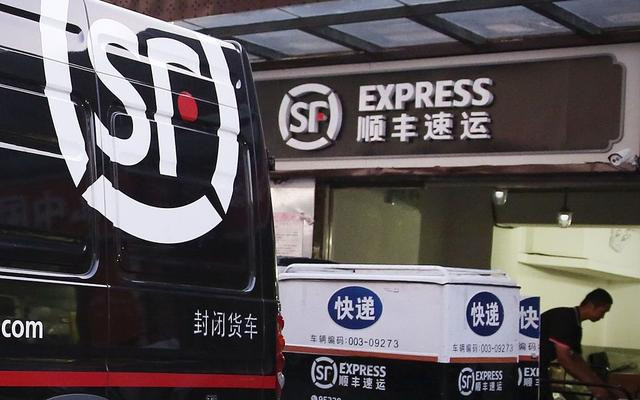SF Express (Group) Co., Ltd., one of China's biggest delivery companies, has opened international freight routes to Frankfurt and Los Angeles from Wuhan and Shenzhen in addition to its three existing international routes.
Operating Boeing 747-400 planes, the flights carry e-commerce commodities, textile products, auto accessories and mechanical equipment from China.
The company has a fleet of nearly 60 all-cargo aircraft flying to 70 domestic and international cities.
The SF-Express International Airport in Wuhan with an estimated 61 billion yuan ($9.23 billion) of investment is expected to be in operation in 2021. It will become the first freight airport in Asia.
Ramping Up Performance
SF Express reported 109.594 billion yuan in third quarter revenues, an increase of 39.13% year on year, while totaling 5.105 billion yuan in net profits - a rise of 45.48% compared with one year ago.
Additionally, its shares topped 90 yuan - more than doubling from the start of the year.
Accounting for 10.1% of the market share as of September, the financial performance for SF Express appears positive in the very fierce "price deduction" battle among delivery companies owing to the coronavirus pandemic this year. Most express companies experienced nearly 20% price deductions.
STO Express, one leading rival, sold 370 million shares to Alibaba in September in what was seen by analysts as a move to raise 6.6 billion yuan for beefing up its own international expansion. However, it estimated losses ranging from 40 million yuan to 70 million yuan in the third quarter and reported the cause was related to the market expansion, according to the STO financial report.
Meanwhile, another express giant YTO Express saw 1.386 billion yuan in net profits - an increase of 0.69% compared with one year ago.
Flying Above The Singles Day Traffic Jam
SF Express charges more than its competitors. Its business model that relies upon "heavy assets" is often criticized.
Aside from ensuring its all-cargo aircraft fleet's operation during Singles' Shopping Day, Nov. 11, an event that has traditionally swamped both online shopping outlets and the nation's delivery firms, the company claimed it will utilize a "drone delivery" model to remote regions, SF Express's public affairs representative said.
The drones reportedly can carry goods as heavy as 1.5 tons and fly as far as 1,200 kilometers and as high as 4,500 meters.
With continually increasing expenses in development of technologies such as Blockchain, big-data, smart headphones and smart navigation, president Wang Wei said the company saw technology companies like Google as its main rivals.
Between 2017 and 2019 the company invested 1.604 billion yuan, 2.724 billion yuan and 3.668 billion yuan, respectively, in technology research and development, according to its financial report. The company has applied for up to 2,361 patents and owns 1,220 software copyrights.
This February, SF Express subsidiary SF Freight, which was launched as a stand-alone brand in 2019, issued and sold convertible notes through private placements to purchasers including CITIC Capital Partners, CDH Investments and Genuine.
The proceeds will be used for technology development and logistic network expansion, said SF Freight.
Grounded Service
There are about 406,000 sets of self-service parcel pickup machines in apartment complexes across the nation. These machines function upon delivery number or QR code. In order to win customers, these smart pickup machines are usually free of charge.
SF Express-owned Hivebox accounts for 69% of the market share of pickup machines following its acquisition of May, a pickup business formed by EMS to compete with the delivery pickup giant, Alibaba-owned Cainiao.
Alibaba Group holds stakes in most of the mainstream express chains including ZTO Express (8.7), STO Express (15%), Best (33%) and Yunda Express (2%).
Logistics experts said, with Alibaba's advantage in big data, Blockchain and artificial intelligence, it was likely these will collaborate in technology in the near future to compete against SF Express.
SF Express has reportedly spent nearly 5 billion yuan on Hivebox over the past two years. To defray those costs, it has started to charge a low fee on parcels not picked up on time from the Hive parcel boxes.





